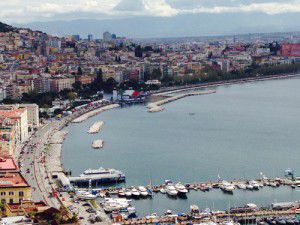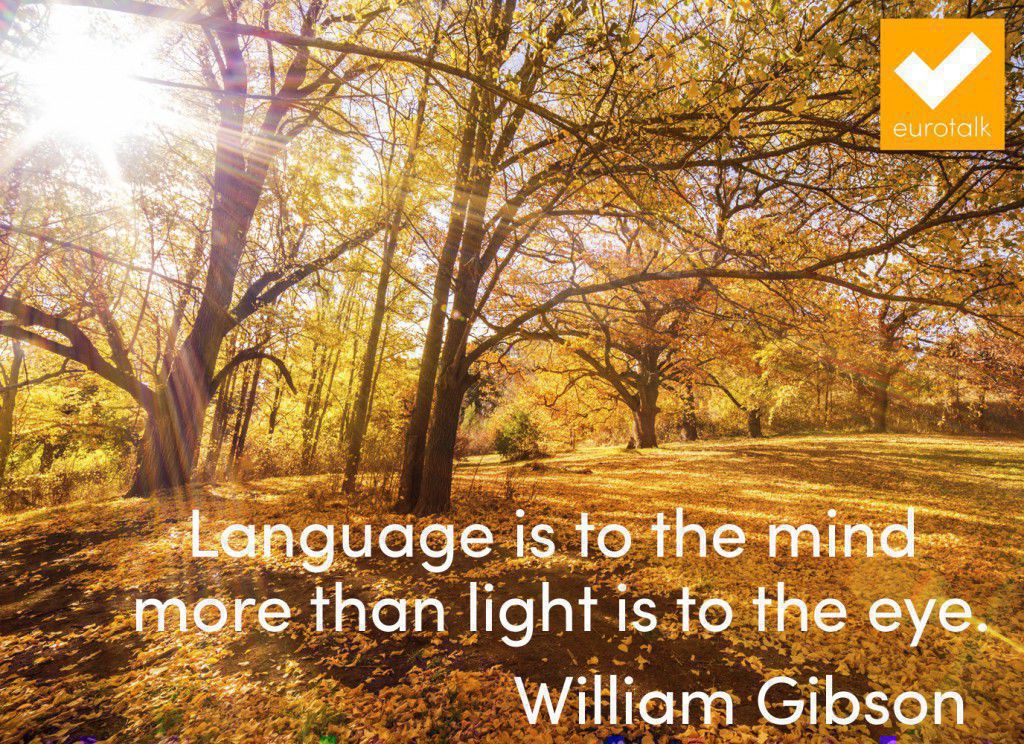What language does the voice in your head speak?
In today’s day and age, a great percent of the people travel, either for vacations, business or even a longer period of time, in search of a better job, better opportunities, to be with the loved ones and why not, just for the sake of a multi-cultural experience. While some of us learn a new language as a hobby or in school, migrants find that it is difficult to live in a country whose language you can’t speak. So this is where we get to the point of this article: how does it feel to speak another language than your native one, every day with everyone.
 First of all, let me take you on a history trip back in the ‘90s. No, we’re not going to listen to Backstreet Boys, instead I’m going to tell you how our generation got to learn English from TV back in Romania. There was a single cartoon program back then, Cartoon Network, and it wasn’t dubbed in Romanian (like it is now), nor did we have subtitles. So we’d just watch the cartoons without completely understanding what they were saying (not that there was much conversation, but still) and I would occasionally ask my parents what does this/that mean. From the age of eight we’d eventually start learning English in school, but by then it already sounded familiar and we would only add the grammar to the equation.
First of all, let me take you on a history trip back in the ‘90s. No, we’re not going to listen to Backstreet Boys, instead I’m going to tell you how our generation got to learn English from TV back in Romania. There was a single cartoon program back then, Cartoon Network, and it wasn’t dubbed in Romanian (like it is now), nor did we have subtitles. So we’d just watch the cartoons without completely understanding what they were saying (not that there was much conversation, but still) and I would occasionally ask my parents what does this/that mean. From the age of eight we’d eventually start learning English in school, but by then it already sounded familiar and we would only add the grammar to the equation.
Growing up, we had daily contact with American English from movies and music and by the time I finished high school I’d already got a certified advanced level.
So I was quite confident in my English; I got the chance to use it for both of the jobs I had in the years I worked in Romania, and I got along really well with the people I’d have to speak in English on the telephone or in meetings.
Last year, when I moved to London I was rather surprised to find that I couldn’t understand what these people were saying. I panicked at first but then I realised that no one is expecting me to be 100% fluent in English so I started asking questions or asking people to repeat so that I can understand properly. As I said, most of the English vocabulary I had was American, so I started picking up the differences like, ‘mug’ not ‘cup’, ‘biscuits’ not ‘cookies’ and ‘fringe’ not ‘bangs’.
At first I found it quite exhausting, and at the end of the day I wasn’t able to concentrate anymore or to use more complex words. With time, I got used to it and I started learning more and more words and expressions that I would afterwards try to use in conversations (like for example ‘I’m skint’, which means ‘I’m broke’). Also, in the first months here, I used to get nervous at the supermarket or whenever a unexpected conversation would start, fearing that I won’t find my words or that I wouldn’t remember certain things. With time, I started gaining more confidence and now, after ten months, I am easily able to have a conversation, express my feelings and ideas accurately and understand almost all what the other person is saying. I still have trouble understanding different English accents, and I would probably see myself stuck in a conversation about, let’s say, gardening tools – so certain topics with a specific word-pool.
You know how in your native language you can express your feelings and state of mind by the words you choose and by your tone of voice? Well, good luck doing that when you only know a single set of words for each thing. Also, studies have shown that sometimes people find that they can speak more freely in a non-native language because they don’t feel that the words ‘really’ belong to them, they’re not ‘their’ words.
But what happens when you spend more than half of the day speaking a different language? Your brain starts to associate certain situations, new situations that you didn’t have to deal with in your home-country, with a certain language – this is when you start to ‘think’ in another language. Some people associate this moment with the moment you start to feel like you belong to a certain culture, that your roots are starting to clench to the ground and now you’ve become (or at least moved closer to being) one of ‘them’.
So I’ve found myself in situations in which it was easier for me to express myself using an English word rather than a Romanian one, either because I found that it sounded better or because I couldn’t think of a proper translation.
It’s funny how the brain works sometimes – I got a call at work today from a business partner that also speaks native Romanian, so naturally I started talking to her in Romanian and found it very difficult to find the right words or to build the sentences without sounding stupid. I felt like I had to do a reverse-translation of what I would normally say in English.
At the end of the day, I can agree that using multiple languages really does wonders for your way of thinking and for the structure of your thoughts. Like Nelson Mandela once said, ‘If you talk to a man in a language he understands, it goes to his head. If you talk to him in his language, that goes to his heart.’
Ioana
Quote of the week: 31 May 2014
“Language is to the mind more than light is to the eye.” William Gibson
For more like this, find us on Pinterest.
Embed This Image On Your Site (copy code below):
What’s so good about Eurovision?
This Saturday is the final of the Eurovision Song Contest 2014 in Denmark, with 125 million people expected to watch across Europe and beyond. The contest, now in its 59th year, has become known for its wacky performances and tends to divide opinion; while some people love it (although maybe not as much as this man), others claim to find it tacky. But I think most people can agree that whether you take it seriously or not, Eurovision is good fun. (Even if sometimes you need a drink or two to help you through it.) Here are our ten favourite things about Eurovision:
1. Russian Grannies
I had to put this first because it was one of my favourite ever Eurovision moments. The song on its own is fairly forgettable, but what made it amazing was the elderly ladies who managed to incorporate baking into their performance at the 2012 contest. I’m still not sure what it had to do with a Party for Everybody, but it was brilliant, and I’m still disappointed that it didn’t win.
2. Riverdance
The Irish dance act were first discovered when they performed during the interval of the Eurovision Song Contest in 1994. Known for its amazing synchronicity, energy and rhythm, Riverdance went on to become a worldwide phenomenon. So if you’re not a fan, now you know who to blame.
3. Romanian rivalries
In the UK, it’s not seen as very ‘cool’ to enjoy Eurovision, but some other countries take it incredibly seriously. In Romania, for example, it’s a really big deal and apparently it’s traditional for the acts to try and win a place by discrediting their opponents.
4. The voting
How could I not mention the political voting? Half the fun of Eurovision is predicting who’s going to give points to who. Greece and Cyprus usually vote for each other, as do the Scandinavian countries and the Balkans. If that sort of thing interests you, this is a useful summary. Unfortunately, the political voting tends to leave the UK in a precarious position; we often get votes from Ireland, and sometimes Malta, but not very often from anyone else…
5. The UK
While we’re on the subject, let’s take a look at the UK’s Eurovision record. It’s hard to believe looking at recent history, but apparently it’s one of the most successful countries, winning five times since our first appearance in 1957. The last win was in 1997, with Katrina and the Waves, and since then we’ve not been doing so well, finishing last three times. The first of these was in 2003, when we scored an embarrassing ‘nul points’. Apparently this year’s entry, Children of the Universe, by singer-songwriter Molly, is expected to do well. I’ll believe it when I see it.
6. ABBA
It’s not often that a Eurovision act goes on to have a successful long term career, but one exception is Swedish group ABBA. Not only did they win the contest for Sweden in 1974, they went on to sell over 380 million albums worldwide. Their music also featured in the hit film Muriel’s Wedding and the award-winning musical, Mamma Mia! (And the movie version, which introduced the world to the singing ‘talents’ of Pierce Brosnan.)
7. Alcohol is Free
Regardless of your views on drinking, it’s hard not to tap your foot along to Alcohol is Free, by Koza Mostra and Agathonas Iakovidis, a.k.a. the Greek answer to Madness. They finished sixth in 2013.
8. Finland
We love Finland; they always come up with something memorable. Last year was the catchy Marry Me, which ended with that kiss, but nothing beats 2006 entry Hard Rock Hallelujah, by Lordi. Eurovision isn’t known for its heavy metal, preferring to stick to happy songs about how we should all love each other. But the alternative approach seemed to do the trick; the band won that year’s contest.
Warning: this video contains flashing lights and monster masks!
9. Language rules
Eurovision used to have a very strict rule about countries only singing in their native language, which has been lifted and restored a few times over the years. These days, many of the competing countries choose to perform in English, but some remain loyal to their own language; France and Spain are two examples. When I was growing up, there were more songs in other languages than there are today, and we used to enjoy turning on the subtitles and watching them struggle to translate the lyrics. Songs in English have won 28 times, followed by French, with 14 wins.
10. Fairytale
This was a popular choice in the EuroTalk office. Every now and again, Eurovision does actually produce a good song, and Fairytale was the one that we all thought of. The Norwegian entry for 2009 featured violinist Alexander Rybak, and won with a record-breaking 387 points out of a possible 492. For some reason, Alexander and his dancers were also a bit of a hit with the ladies…
Have we left out your favourite thing about Eurovision? Let us know in the comments!
Liz
10 popular expressions we owe to Shakespeare
Today is the official anniversary of William Shakespeare’s birth. (23rd April is also the day he died, but let’s not dwell on that.) For those of us who speak English every day, we often forget, or don’t realise, how many of the words and phrases we use come from the works of Shakespeare.
Of course we don’t know for sure that he invented them all himself (although apparently about a tenth of the words he used in his work were new). But it’s interesting to see how many of us, even those who claim not to be fans of his work, are regularly quoting Shakespeare.
There are so many examples of these – here are just a few.
Green-eyed monster
What does it mean? Jealousy.
Which play? Othello (Act III, scene 3) – although Shakespeare had earlier used ‘green-eyed’ to describe jealousy in The Merchant of Venice (Act III, scene 2).
“IAGO: O, beware, my lord, of jealousy;
It is the green-eyed monster which doth mock
The meat it feeds on”
Cruel to be kind
What does it mean? Treating someone badly for their own good.
Which play? Hamlet (Act III, scene 4)
“HAMLET: I must be cruel only to be kind.
Thus bad begins and worse remains behind.”
It’s all Greek to me
What does it mean? Completely incomprehensible.
Which play? Julius Caesar (Act I, Scene 2)
“CASCA: those that understood him smiled at one another and shook their heads; but, for mine own part, it was Greek to me.”
Break the ice
What does it mean? To get a conversation going, often by breaking some initial tension.
Which play? The Taming of the Shrew (Act I, Scene 2)
“TRANIO: And if you break the ice and do this feat,
Achieve the elder, set the younger free”
In a pickle
What does it mean? In a tricky situation.
Which play? The Tempest (Act V, Scene 1)
“ALONSO: How camest thou in this pickle?”
Forever and a day
What does it mean? A really long time!
Which play? As You Like It (Act IV, Scene 1)
“ROSALIND: Now tell me how long you would have her after you have possessed her.
ORLANDO: Forever and a day.”
The world’s my oyster
What does it mean? To have a wealth of opportunities.
Which play? The Merry Wives of Windsor (Act II, Scene 2)
“PISTOL: Why then the world’s mine oyster, Which I with sword will open.”
One fell swoop
What does it mean? All at once.
Which play? Macbeth (Act IV, Scene 3)
“MACDUFF: What, all my pretty chickens and their dam
At one fell swoop?”
Good riddance
What does it mean? To be glad to see the back of someone.
Which play? Troilus and Cressida (Act 2, Scene 1)
“THERSITES: I will keep where there is
wit stirring and leave the faction of fools.
[Exit]
PATROCLUS: A good riddance.”
Eaten out of house and home
What does it mean? To take advantage of a host’s generosity.
Which play? Henry IV Part II
“MISTRESS QUICKLY: He hath eaten me out of house and home; he hath put all my substance into that fat belly of his”
How many of these have you used lately? And does anyone have any other favourite Shakespearean phrases?
Personally, we’re a bit disappointed that more of Shakespeare’s insults haven’t made it into modern English; you don’t hear ‘thou cream-faced loon’ often enough these days (although maybe that’s a good thing). There’s probably a whole other blog post to be had from Shakespeare’s insults – but in the meantime, here’s a random insult generator – have fun, but be careful who you say them to!
A little language goes a long way
As marketing manager here at EuroTalk, it’s my job to tell everyone how great our products are. But from time to time, I need to use them for myself and I get reminded all over again just how useful they are.
 Last weekend I spent a few days in Naples, Italy. I was determined before I left to try and speak a little bit of Italian; after all I spend most of my time telling other people they have to speak the local language, not to mention it just seemed like the polite thing to do. As it turned out, it was also quite necessary because to our surprise, although it’s a pretty touristy area, not many people spoke English. Fortunately I’d come prepared with uTalk on my phone, and it turned out to be invaluable.
Last weekend I spent a few days in Naples, Italy. I was determined before I left to try and speak a little bit of Italian; after all I spend most of my time telling other people they have to speak the local language, not to mention it just seemed like the polite thing to do. As it turned out, it was also quite necessary because to our surprise, although it’s a pretty touristy area, not many people spoke English. Fortunately I’d come prepared with uTalk on my phone, and it turned out to be invaluable.
I left home with no Italian at all, apart from the basics – ‘ciao’, ‘grazie’ and ‘per favore’ were the first words I tried out (all included in the free version of the app). I’d also learnt the numbers up to three in advance, so I could ask for a table in restaurants. Pretty soon I realised I also needed to know ‘una bottiglia d’acqua’ because it was quite hot and sunny (when it wasn’t pouring with rain), and some higher numbers so I knew how much money I was being asked for. So out came uTalk for a quick revision session.
The first time we went to a restaurant, the waiter spoke some English and somehow identified us as Brits the moment we walked in, so my contribution was fairly limited, although I was insistent that I wanted to say what I could in Italian. The following night, I managed to ask for the bill, thanks to a quick check of my phone. And by the last night, I was able to order dessert by describing what I wanted (‘una torta de fragole’) and was astonished and delighted when the waiter brought me exactly what I wanted without any confusion. (We also got free limoncello at that restaurant – although I think they might have given that to everyone.)
Our main challenge in Naples was figuring out the ‘funicolare’ – which, by the way, is the weirdest way I’ve ever travelled. (For those who aren’t familiar, it’s basically a little train/car that carries people up and down the mountain – but on the inside and at a 45 degree angle. It’s quite surreal.) I’ll admit there was a bit of English used when I asked the man in the station how it all worked the first time, but then after another quick check of uTalk, I managed to buy us three tickets (‘bigliettos’) from the slightly intimidating lady in the little shop next door.
None of my conversations were particularly long or profound, but every time I said something in Italian and the person I was speaking to understood me, I gained a little bit of confidence. By the time I left, I was quite looking forward to these little exchanges, and was a bit disappointed if someone talked to me in English. There were a lot of Brits around, as we were all there for the Davis Cup tennis (the less said about that the better) and we witnessed a few fellow tourists adopting the ‘talk louder in English’ approach, not to mention quite a lot more standing around looking very confused in the funicolare station. So it was quite satisfying to know that we’d made the effort; the locals I spoke to certainly seemed to appreciate it. And yes, there were a couple of occasions when they thought I knew more than I did and started chatting away in rapid Italian, but somehow I managed to fumble my way through it (‘non capisco’ – I don’t understand – is another important phrase to learn).
It’s always useful to learn a few words before you leave for your holiday, but for me the most useful thing about uTalk was that I always had access to the vocabulary – written and spoken – whenever I needed it. I wouldn’t necessarily have thought to look up ‘strawberries’ and ‘cake’ before I left, for example, so without uTalk I might have missed out on this amazing dessert. And that would have been a tragedy.


